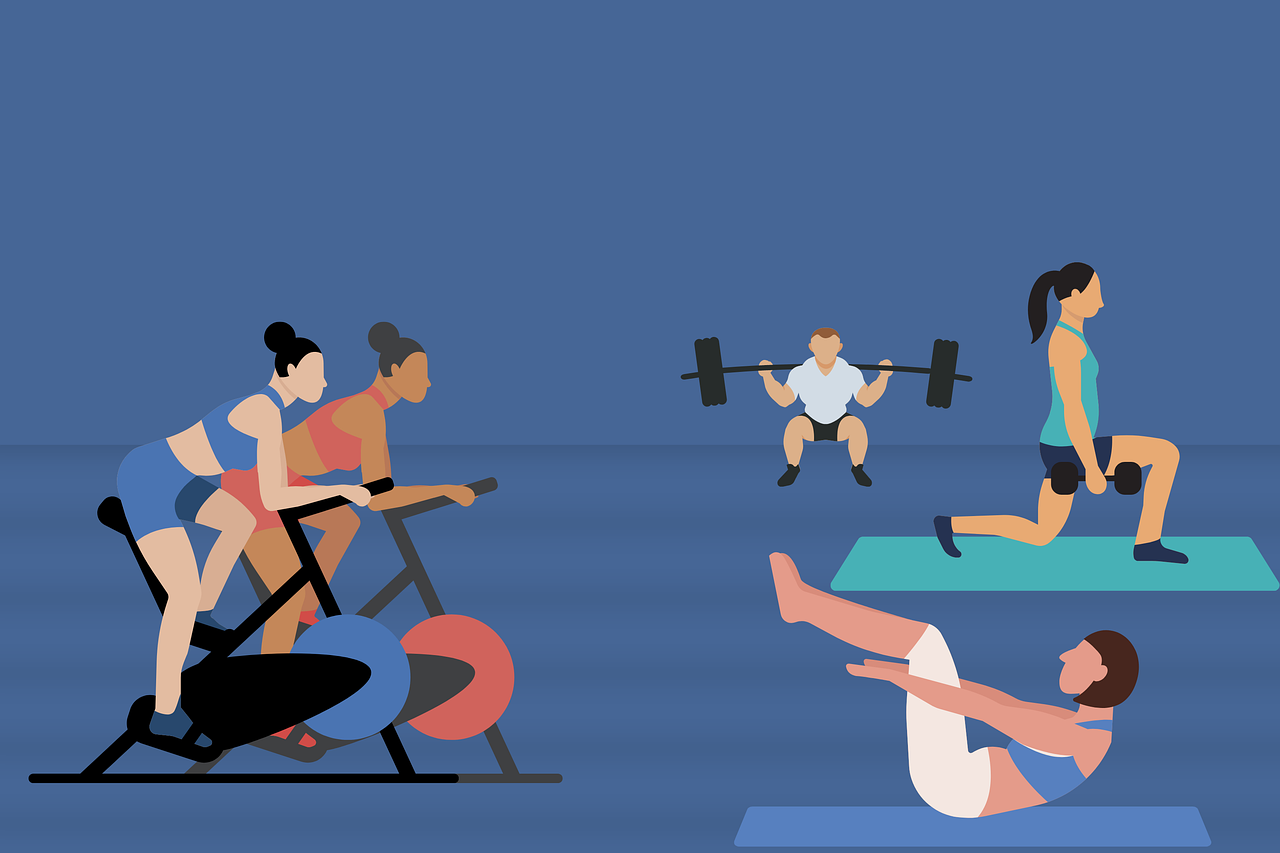Table of Contents
![]()
Introduction
The immune system is a complex network of cells, tissues, and organs that work together to defend the body against harmful pathogens, such as bacteria, viruses, and other invaders. A healthy immune system is crucial for preventing infections and maintaining overall well-being. Exercise, widely recognized for its benefits on physical fitness, also plays a significant role in supporting and enhancing immune function. This article explores the intricate relationship between exercise and immune health, detailing the mechanisms, benefits, and practical recommendations for incorporating exercise into a healthy lifestyle.
The Immune System and Its Functions
Components of the Immune System
The immune system comprises various components, including white blood cells, organs, and proteins. White blood cells, such as lymphocytes and macrophages, are key players in identifying and neutralizing pathogens. Organs like the spleen and thymus are vital for the development and maturation of immune cells. Additionally, proteins such as antibodies and cytokines are essential for orchestrating immune responses and signaling between cells.
How the Immune System Protects the Body
The immune system protects the body through a series of coordinated actions. It begins with the recognition of pathogens, followed by the activation of immune responses. This process includes the mobilization of immune cells to the site of infection and the production of antibodies that specifically target the invaders. The immune system then works to eliminate the pathogens and remember them for future encounters, thus providing long-term protection.
Exercise and Immune System Interaction
Acute Effects of Exercise on Immune Function
When you exercise, there is an immediate boost in immune function. Acute exercise increases the circulation of immune cells, which enhances their ability to detect and respond to infections. During and shortly after exercise, the body releases cytokines, which help coordinate the immune response. However, it’s important to note that intense or prolonged exercise can temporarily suppress the immune system, making the body more susceptible to infections immediately after the workout.
Chronic Effects of Regular Exercise on Immune Health
Regular, moderate exercise has been shown to have a beneficial impact on long-term immune health. Consistent physical activity enhances immune surveillance, meaning the body is better equipped to detect and respond to pathogens. Studies also indicate that regular exercisers have improved responses to vaccinations, which is crucial for preventing diseases. Additionally, exercise helps to reduce inflammation, a common factor in many chronic diseases.
Types of Exercise and Their Specific Effects
- Aerobic Exercise
Aerobic exercises, such as running, swimming, and cycling, improve cardiovascular health and have been linked to enhanced immune function. This type of exercise increases heart rate and improves blood flow, which helps immune cells travel more efficiently throughout the body. Recommendations generally include at least 150 minutes of moderate-intensity aerobic activity per week. - Strength Training
Strength training exercises, such as weight lifting and resistance exercises, contribute to muscle health and also positively affect immune function. Regular strength training can increase muscle mass and improve metabolic health, which in turn can support a more robust immune response. It is recommended to include strength training exercises at least twice a week. - Flexibility and Balance Exercises
While flexibility and balance exercises, such as yoga and stretching, may not directly impact immune function, they offer indirect benefits by reducing stress and improving overall well-being. Stress management is crucial for maintaining a healthy immune system, and flexibility exercises can help in alleviating physical and mental tension.
Mechanisms Behind Exercise-Induced Immune Benefits
Hormonal Responses
Exercise stimulates the release of endorphins, often referred to as “feel-good” hormones, which can enhance mood and reduce stress. Stress hormones, such as cortisol, also increase with exercise, but their effects are generally balanced by the positive impact of physical activity. Regular exercise helps modulate cortisol levels, which can reduce inflammation and support immune health.
Cellular and Molecular Mechanisms
At the cellular level, exercise boosts the production and function of white blood cells. It also influences the trafficking of immune cells, enhancing their ability to move to areas of infection or injury. Exercise promotes the production of certain cytokines that are involved in immune regulation and inflammation control.
Influence on Chronic Disease Risk
Regular physical activity plays a role in reducing the risk of chronic diseases, such as obesity, type 2 diabetes, and cardiovascular disease. Obesity and chronic inflammation are known to negatively impact immune function, so by maintaining a healthy weight and reducing inflammation, exercise contributes to a more effective immune response.
Factors Influencing the Exercise-Immune Connection
Exercise Intensity and Duration
The intensity and duration of exercise can affect immune health. Moderate exercise typically enhances immune function, while excessive or intense exercise can lead to temporary immune suppression. It is crucial to find a balance and allow adequate recovery to avoid the negative impacts of overtraining.
Age and Immune Function
Immune function can vary with age. Children and older adults may experience different immune responses to exercise compared to younger adults. For example, older adults may benefit significantly from regular physical activity to counteract age-related declines in immune function. Exercise recommendations should be adjusted based on age and individual health conditions.
Nutrition and Lifestyle Factors
A balanced diet is essential for supporting the benefits of exercise on immune health. Proper nutrition helps fuel workouts and supports recovery. Additionally, adequate sleep and stress management are important factors that complement the positive effects of exercise on the immune system.
Practical Recommendations
Guidelines for Maintaining Immune Health Through Exercise
To maintain and enhance immune health, aim for a combination of aerobic and strength training exercises. Recommendations typically include 150 minutes of moderate-intensity aerobic exercise per week, alongside strength training exercises twice a week. Incorporate flexibility and balance exercises to promote overall health and well-being.
Tips for Integrating Exercise into Daily Life
Set realistic and achievable exercise goals to stay motivated. Find activities you enjoy to make exercise a sustainable part of your routine. Incorporate physical activity into daily tasks, such as taking the stairs or walking during breaks, to increase overall activity levels.
Monitoring and Adjusting Exercise Plans
Pay attention to your body’s signals. If you experience excessive fatigue, soreness, or signs of illness, adjust your exercise routine accordingly. Ensure adequate rest and recovery to prevent overtraining and maintain a healthy immune system.
Conclusion
In summary, exercise plays a crucial role in supporting and enhancing immune health. By understanding the complex interactions between physical activity and the immune system, individuals can make informed choices to optimize their health. Regular, moderate exercise offers numerous benefits, including improved immune function, reduced inflammation, and a lower risk of chronic diseases. Embrace a balanced exercise routine as a key component of a healthy lifestyle, and enjoy the benefits of a robust immune system.
Share This





Be the first to comment